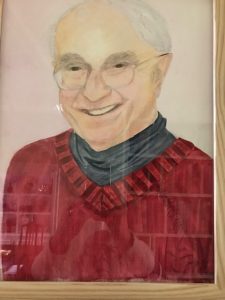Richard Bosworth

Professor Richard Bosworth
- Post Nominals: FAHA, FASSA
- Fellow Type: Corresponding Fellow
- Elected to the Academy: 1995
Biography
Professor Richard Bosworth’s books include Claretta: Mussolini’s last lover (2017), Italian Venice: a history (2015), Whispering City: Modern Rome and its Histories (2011), From Humble Beginnings: the Mount Lawley Golf Club (2011) (ed.), The Oxford Handbook of Fascism (2009), Nationalism (2007), Italy, the Least of the Great Powers: Foreign Policy Before the First World War (1979), Mussolini’s Italy (2005), Mussolini (2002; rev. ed. 2010), The Italian Dictatorship: Problems and Perspectives in the Interpretation of Mussolini and Fascism (1998), Italy and the Wider World 1860-1990 (1996), Explaining Auschwitz and Hiroshima: History Writing and the Second World War 1945-1990 (1993). Also, with Joe Maiolo (eds) vol. II (Politics and ideology) of The Cambridge History of the Second World War (3 vols.), with P. Dogliani (eds), Italian Fascism: History, Memory and Representation (1999) and with M. Melia (eds), Western Australia as it is Today by Leopoldo Zunini (1997), Jesus College Oxford: of Queene Elizabethes Foundation: the first 450 years (ed. Felicity Heal with Robin Darwell-Smith, Richard Bosworth and Colin Haydon) (Profile editions: Oxford, 2021), Mussolini and the eclipse of Italian Fascism: from dictatorship to populism, (London and New Haven: Yale University Press, 2021).
Bosworth’s latest book is, Politics, murder and love in an Italian family: the Amendolas in the age of totalitarianisms (Cambridge University Press, 2023).
His two books about Mussolinian Italy won five of Australia’s major history prizes and were short-listed for five others. They were also translated into Italian and several other languages. He is also part of a team producing a new history of Jesus College, Oxford for its 450th anniversary in 2021. In addition he has written more than 36 chapters, more than 100 academic articles, and over 150 academic reviews. Various pieces of his works have been translated into Italian, Spanish, Slovenian, Estonian, German, Russian, Arabic, Portuguese and Turkish.
Bosworth at different times has also held visiting fellowships at St Johns College and Clare Hall Cambridge, Balliol and All Souls Colleges, Oxford and the Casa Italiana at Columbia University, New York.
Portrait painetd by Ella Bosworth-Gerbino in 2021
